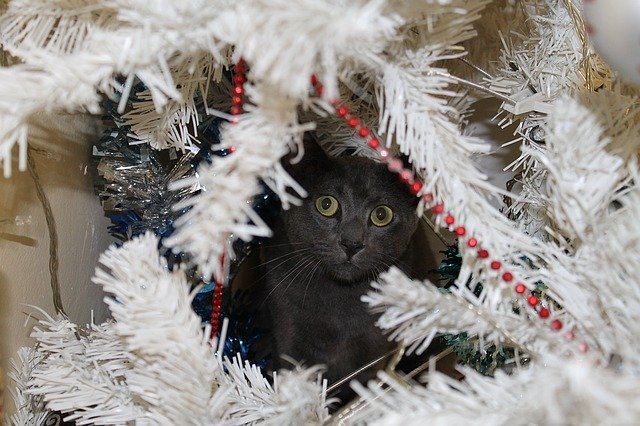At the last minute, I grabbed some towels and stuck them in the van for after. I knew the recent snows would make the trails cakey muddy. I wanted to be OK with that, let the kids play, not be cautioning them and admonishing them because of the potential mess. This was our kids’ first full American winter after a childhood spent overseas. I wanted everyone to be free to enjoy the blue sky and the red rocks and the slightly warmed air. I guess I wanted the mud and mess to not matter.
We hiked a bit, then arrived at the iced-over pond just over a hill. My kids picked at the edges of the ice with toes and hands, breaking bits off. They raised chunks above their heads, then dropped them onto the ground. The ice shattered into sharped-edged shapes.
“We’re breaking windows,” one of them joked.
“This is strangely satisfying,” another said.
They named it “Ice Pile,” as proud as if they’d spent years designing the haphazard structure.
To me, it looked like a dozen broken puzzles all mixed together. I waffled, unsteady, between agreeing with their satisfaction at the sound of breakage to wishing I could piece it all back into a picturesque whole.
They soon moved onto throwing rocks on the pond, determined to break through the ice. We’d had many 60-degree winter days sandwiched in between frigid snowy days. So, the ice, as far as we could tell from the chunks, was only an inch thick, with a few long cracks over the surface. We all felt sure that if they found a big enough rock or threw one hard enough, it could easily make a hole. Maybe it could even cause a ripple of cracks throughout the whole pond.
But big boulders, or small rocks thrown with great might—they all skidded over the surface, the sound of contact a boingy repetition that made us all laugh. The only breakage they could manage was at the very edge, which they worked on diligently. I knew the next day’s promised snow storm would ice it all over again.
The Storm
I was trying to play, and relax and enjoy. But I couldn’t help but think about the attempts I’d recently tried to break through an unhealthy system. When I reported to leaders the spiritual abuse I’d experienced within the organization of which I was a part, I felt like I was in the middle of a storm on the ocean. The choppy waters slapped against me, the shore too far to reach. In order to keep from drowning, I felt like I had to build my own raft, but first find my own materials, and come up with tools to do it. It seemed like others in my organization were on a gorgeous sailboat in the distance, stretched out on chaise lounge chairs with umbrella drinks in their hands, wondering why I was struggling so much. “Everything’s fine!”
I found some materials and tools I thought would work—organizational policies that seemed to offer protection, the personnel department tasked with following employee laws, a couple of leaders I thought I could trust, my own carefully-thought-out words, all the kindness and patience I could muster, earnest pleas for help, my promised silence if they’d just fix things, and my own attempts to move on in spite of a lack of change and my own wounded faith.
Exiled
In the end, I was thrown onto shore by the organization. It was, I believe, retaliation. Not rescue. It meant we had to move back to our home country, ultimately make a job change, and resulted in the loss of a ministry and wonderful co-workers. Other losses too, some still too painful to list.
“Insubordination” was one of the reasons they used. They used tools, too to build their narrative—harsh, jagged, weaponized distortions of things I used to think could make healthy community. Unity. Reconciliation. Forgiveness. They claimed my husband and I were against all these.
They yanked out of my hands other tools like: my voice, accountability for leaders, best practices, protection of subordinates.
I landed hard on the shore, sand in my eyes, the few belongings I’d managed to grab dirty and scattered. I felt exiled, shamed, unwanted, misunderstood. At first, I’d walk to the edge of the water, longing to be invited onto their sailboat, begging to explain myself better. I kept my back turned to the beach, my eyes ignoring the storms that continued to brew at sea. Eventually, though, I looked around, noticed the soft sand, the light breezes, the green trees, the people there to greet me.
I’d made it out of the storm, just not in the way I’d wanted.
Sorting Out the Pieces
The months passed, and I tried to sort it all out, but the metaphors got mixed for me. Was I trying to get to shore? Or was I trying to knock through the ice, crack open what seemed wrong? Or am I try to piece something that was shattered back together again? Or am I what was shattered? And what do I do with the other things in the water—the good that I believe the organization is doing, the lifeboats they’re tossing to needy people, the lighthouse of faith they point to?
And what of the future? Do they own the entirety of oceans or are they just a small pond in this big world? Can I get back in the water somewhere else and not be consumed with its waves?
My husband has been in this whole thing with me. As a result, he’s now starting a new job, going through training, trying to focus on his studies, but also thinking about our new mortgage, and our kids’ needs, and the many costs of sudden transition. His roommate in training is just out of college, much younger, confident, optimistic. He believes in himself and the system in a way that seems lost to my husband and me at this point.
My husband called me from the place where he’s training, after I’d returned from the pond. “I’m not like that anymore,” he said, telling me how his roommate went out for dinner while my husband stayed in the room to study. “I know now that bad stuff can and does happen.”
“I’m with you,” I said. Then trying to be brave, “Don’t worry. I’m ready for whatever does happen. We’ll figure it out. It’ll be an adventure.”
Who Am I Now?
I’ve been talking with a friend of mine about platitudes, how we both hate them for their lack of complexity, reality, nuance and understanding of suffering in this world. But as I said them to my husband, I felt less like I’m offering him hollow sayings and more like I’m sorting through the pieces of who I was, or who I am, or maybe who I want to be, to see if they still fit. Have I just returned from a grand adventure, or a doomed endeavor? Am I brave or broken? Am I a warrior for speaking up or a traitor for speaking ill? Am I free to move forward, or stuck in exile? Will life be better or harder than it was in the ocean?
I told my husband about the pond, the rocks that skidded over the ice, the boingy sound, and that I’d remembered to bring towels for muddy shoes and hands. I sent him a picture I’d snapped with my phone. The scene looked like it could’ve been made into a boxed puzzle with its blue sky, icy pond, mountains and bright sun. I noticed for the first time the logs caught half submerged, stuck at strange angles. Though ice can look picturesque, it has a way of trapping things that should be free.
I recently saw a You Tube video about how it’s possible to skate on thin ice, if done just right. The video of the man skating showed the boingy sound as he glided. The reason, the video said, that even thin ice is still strong is because of two things: the power of the water underneath holding it up, and the attachment of the ice to the sides of the shore.
I thought how I was no longer part of water holding up ice. I thought, too, of how my kids and I chipped away at the edges and how it felt futile. But maybe, just maybe, it was making a difference.
I don’t know what will happen to that organization, don’t know if the ice there will someday be broken, or will melt, or will just keep refreezing in perpetual winter.
I do know, though, that spring follows winter. On this shore, anyway. And when it does, I’ve already decided. I’ll dip my toes in the water, testing to see if it’s safe to swim here. And then, towel nearby, I’ll take it a step at a time.



